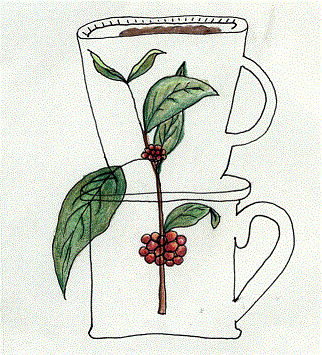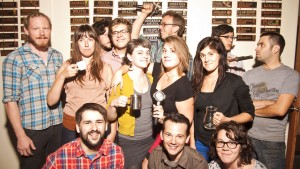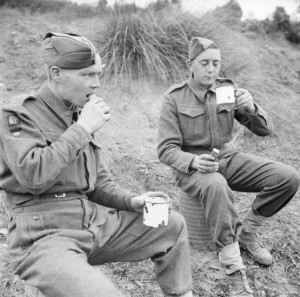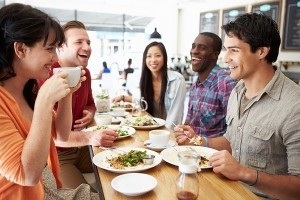In coffee, I want to be able to attribute a lot of the taste to terroir… but really all the facts are just against it. Sure, its important to have good soil, but location only matters when it comes to altitude. From what I’ve gathered from most coffee producers and roasters, terroir is one of the least important factors when it comes to taste. According to Sam and Oliver at Olympia Coffee Roasters, the two most important factors in flavor development are how the bean was removed from the fruit and the varietals. Processing is important because each of the three ways creates a vastly different taste; the processes are natural, honey, or washed. Varietals refers to the varietal of coffee plant the bean is coming from. Personally, when I drink coffee I either taste the coffee or I taste the roast. In the case of Batdorf and Bronson, I taste too much of the roast so it is harder to detect the actual varietal flavors. Whereas at Olympia Coffee Roasters, a light roast was used so the varietal and processing flavors sprung to life in my mouth. Now with what I have tasted and learned during this case study, I can’t say that I taste terroir in coffee, especially if you define terroir as the ‘taste of place’, but I can easily taste the differences in roasting, processing, and varietals… so that has to count for something, right?
Overall, I have just not been presented with enough examples and information to confirm that terroir is even detectable in coffee.
Written by Ashley.




